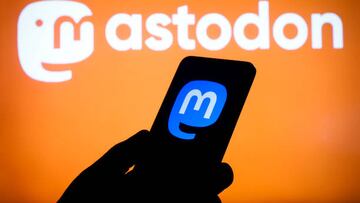What is Mastodon, the most popular alternative to Twitter, and how does it work?
With chaos surrounding Twitter following Elon Musk’s purchase, users are considering a switch to a little-known alternative platform.


Over the past decade Twitter has established itself as a key destination for users around the world who want to keep up to date with the latest information, tracking everything from political developments to sports scores.
However the site has been beset with chaos since the controversial takeover by Elon Musk and the confusion over the recently-added $8 verification status which has trashed the site’s credibility, many are looking for an alternative.
Mastodon has emerged as an early frontrunner to replace Twitter, and the site ostensibly looks similar to Twitter. The name Mastodon is taken from an extinct elephant-like mammal, but does it have what it takes to usurp the bird?
How does Mastodon work?
Unlike Twitter, Facebook and most other social media platforms, Mastodon is a decentralized network. Mastodon is essentially open-source networking software that allows individuals, groups and organisations to form their networks based on independent servers.
When you sign up for Mastodon you will need to pick at least one server for your account to be hosted on. You must create an account and agree to comply with the rules of that specific servers, from community content guidelines to privacy settings.
Some servers are general, while others are based around a specific interest. You can follow multiple servers, but bear in mind that any posts you wish to make will have to satisfy the server’s terms of use.
The decentralized nature may take some getting used to for devotees of Twitter’s homogenous homepage, but this structure is a key attraction for many leaving Twitter. The site has changed greatly since Elon Musk’s purchase last month and has caused chaos for the brands and public figures who rely on the site.
“We present a vision of social media that cannot be bought and owned by any billionaire, and strive to create a more resilient global platform without profit incentives,” reads a company statement on the Mastodon website.
Will Mastodon eventually replace Twitter?
The number of users on Mastodon has more than tripled since 27 October, when Musk’s purchase of the site was confirmed. However even with such rapid growth the site only topped one million active users last week and it pales in comparison to the global reach of Twitter.
TechCrunch estimates that Twitter currently has more than 238 million daily active users and the social media platform has become central to digital connections online. In short, that dominance will not be undone in a matter of weeks.
Related stories
What is more likely, however, is that certain online communities may feel that they are better served by Mastodon. Groups who want to be able to decide their own community guideline and digital practices are given more freedom to do so on Mastodon, and can create something from scratch.
If more groups decide to do so we could see Mastodon become an increasingly significant player in the world of social media.
